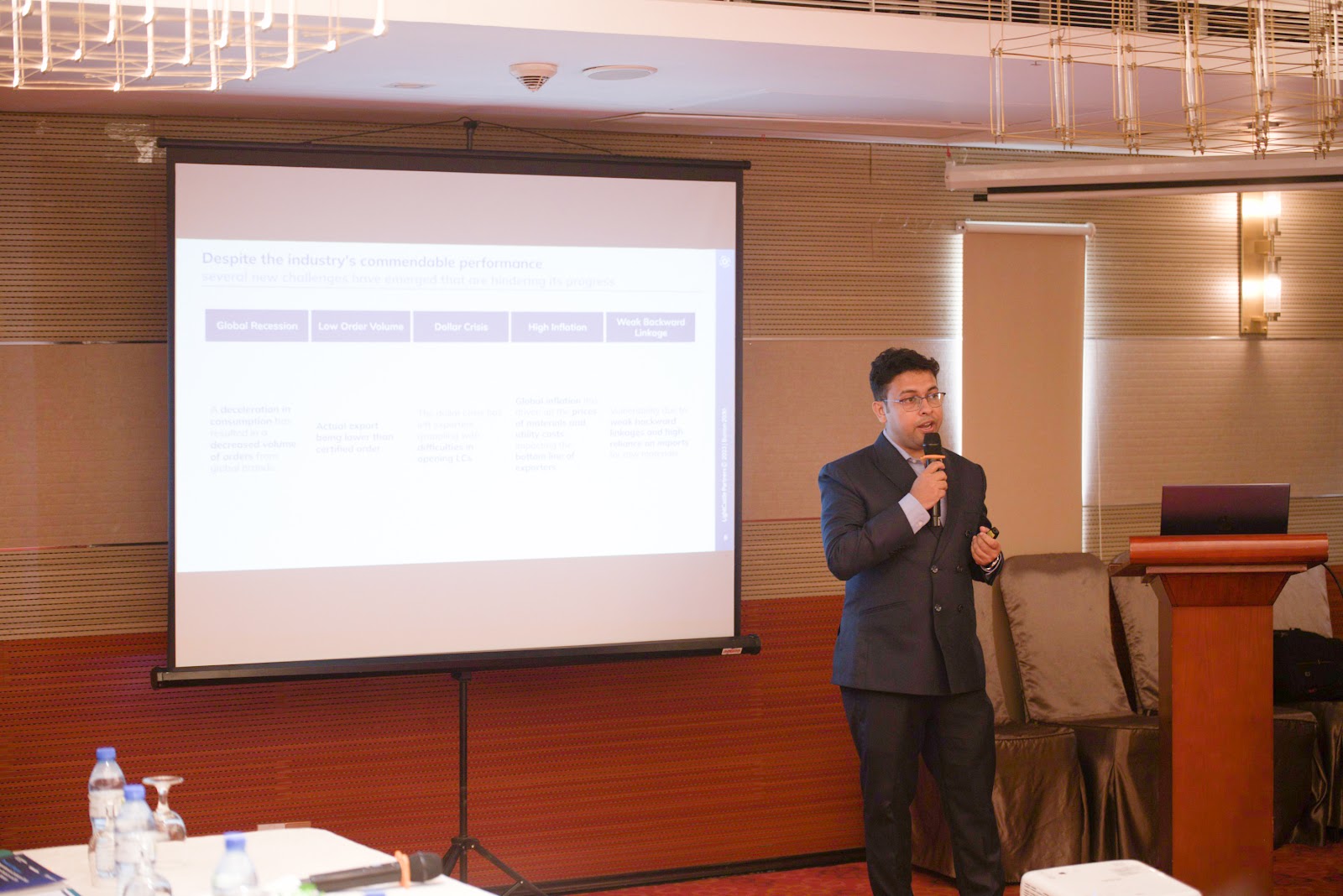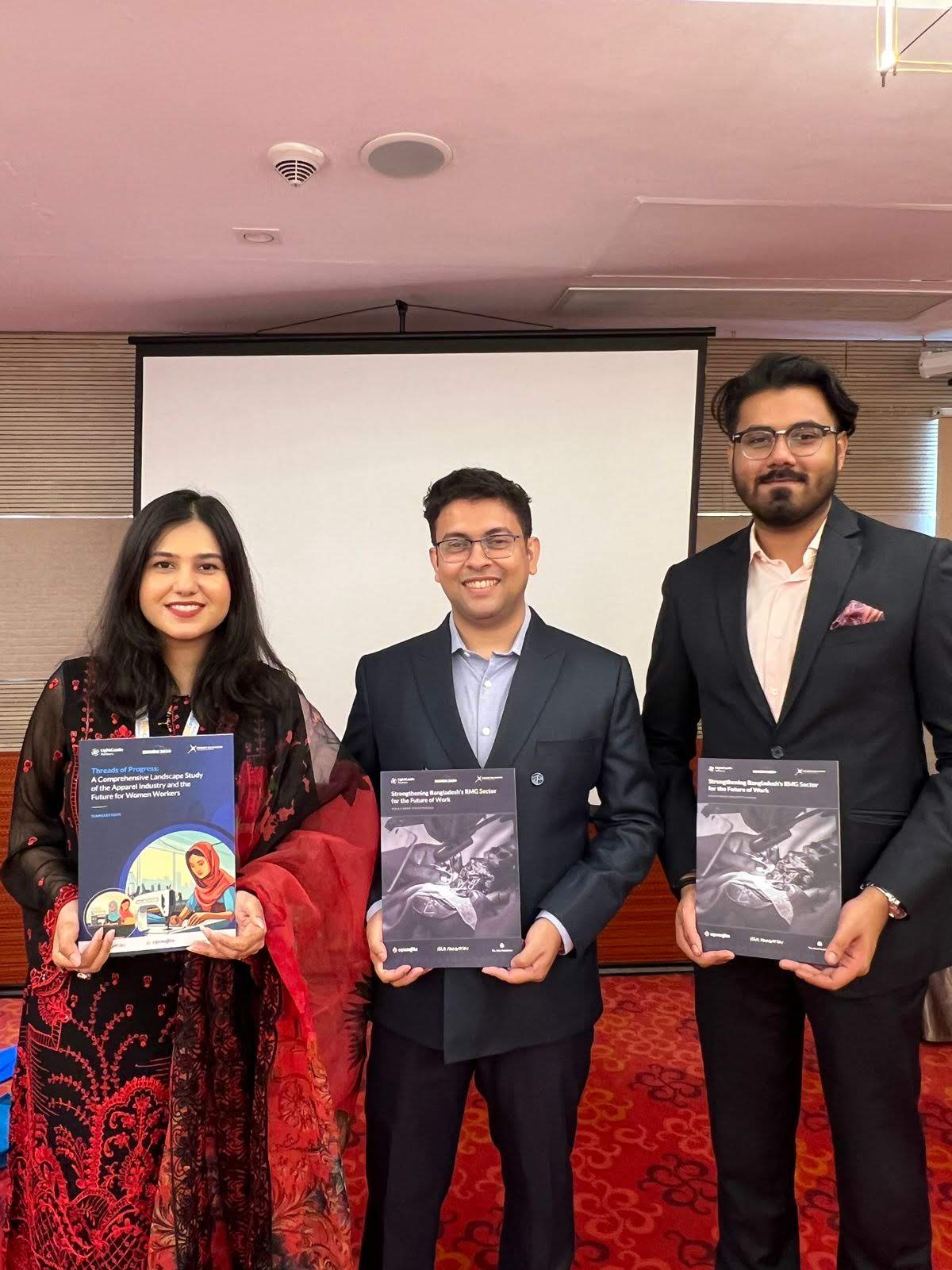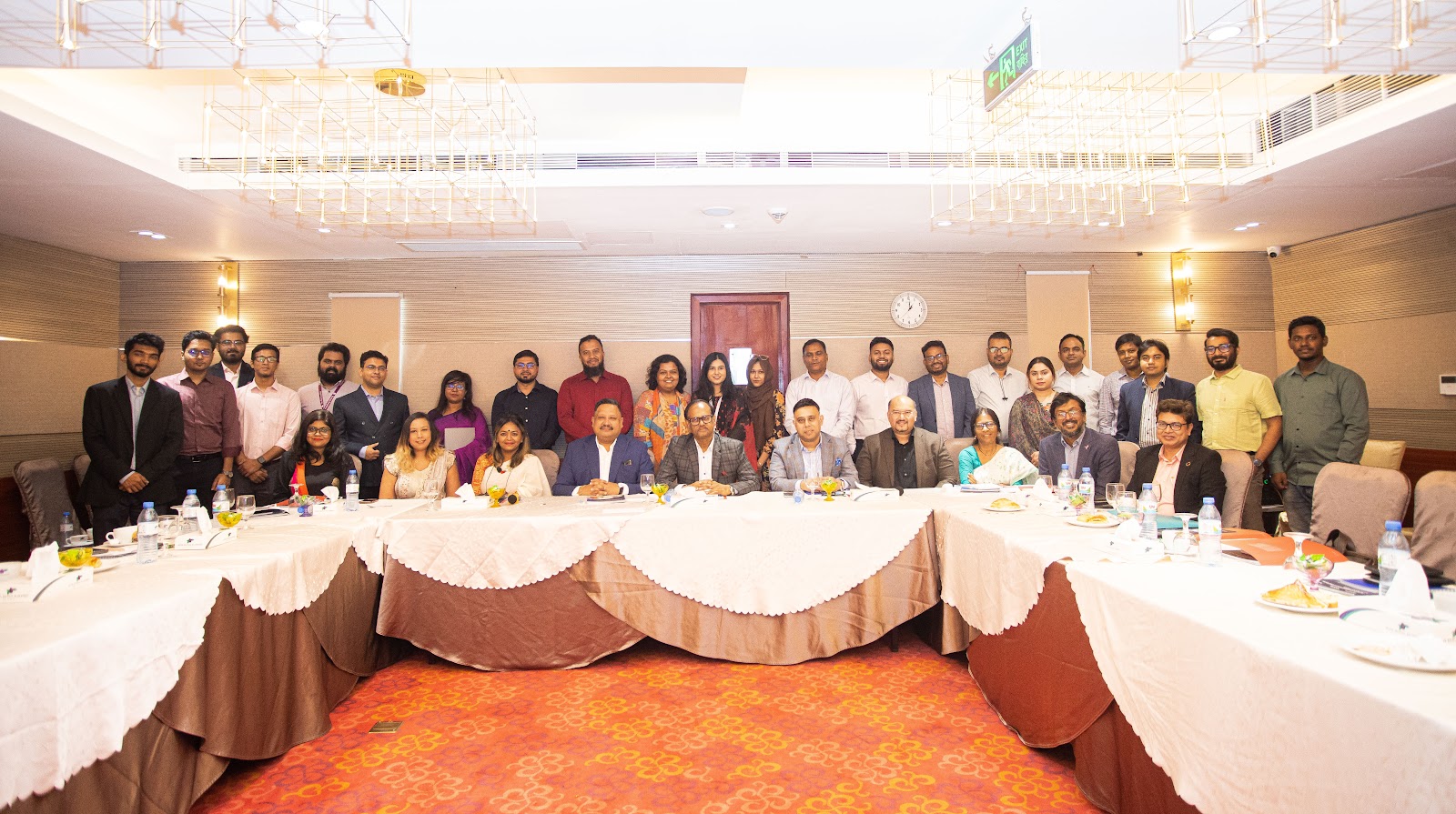I was happy to present the Keynote at the Bunon 2030 Learning Dissemination & Roundtable discussion earlier this month, in the presence of Mr. Md. Abdus Samad Al Azad, Joint Secretary of Ministry of Commerce, and Mr. Shahidullah Azim, Vice President of BGMEA.
After 8 months of diligent work interviewing 40+ national and international stakeholders, discussion with workers, engaging more than 600 participants with knowledge content, we ended up with a strong summary note and two policy briefs that go into the challenges facing the RMG sector, and possible policy interventions.
Thanks to everyone at LightCastle Partners, Policy Exchange Bangladesh, The Asia Foundation and the Oporajita Collective Impact partners for making this possible.
A few reflections from the overall discussion:
1. RMG industry close to the heart of Bangladesh economy, engaging not just 4 million directly but very likely 10 times more indirectly. It is important for us to shape and nurture this industry. A lot of the times, different narratives are being pushed by people just looking at things from different vantage points. It is important to break down silos so that as Bangladesh we can nurture the industry in the best way possible.
2. In the long run, we are in a positive-sum game, not a zero-sum one. It is not workers vs owners, brands vs manufacturers, planet vs profit. One side does not have to lose in order for the other to gain. There are solutions where profit, planet and people overlap to get the best outcome.
3. For me, the role of people in policy advocacy and think tank is not to perpetuate negative connotations, but to be the catalyst of change. They can play a role in evidence based discussion, packaging the solution in a way that creates enough interest in mobilizing systemic change.
A little background: As a part of the 2-year-long project “Oporajita: Collective Impact on the Future of Work in Bangladesh” by H&M Foundation, Bunon 2030 is a dedicated initiative to empower Bangladeshi women garment workers in the face of increasing automation, geopolitics, circularity, and decarbonization, among others.
After 8 months of diligent work interviewing 40+ national and international stakeholders, discussion with workers, engaging more than 600 participants with knowledge content, we ended up with a strong summary note and two policy briefs that go into the challenges facing the RMG sector, and possible policy interventions.
Thanks to everyone at LightCastle Partners, Policy Exchange Bangladesh, The Asia Foundation and the Oporajita Collective Impact partners for making this possible.
A few reflections from the overall discussion:
1. RMG industry close to the heart of Bangladesh economy, engaging not just 4 million directly but very likely 10 times more indirectly. It is important for us to shape and nurture this industry. A lot of the times, different narratives are being pushed by people just looking at things from different vantage points. It is important to break down silos so that as Bangladesh we can nurture the industry in the best way possible.
2. In the long run, we are in a positive-sum game, not a zero-sum one. It is not workers vs owners, brands vs manufacturers, planet vs profit. One side does not have to lose in order for the other to gain. There are solutions where profit, planet and people overlap to get the best outcome.
3. For me, the role of people in policy advocacy and think tank is not to perpetuate negative connotations, but to be the catalyst of change. They can play a role in evidence based discussion, packaging the solution in a way that creates enough interest in mobilizing systemic change.
A little background: As a part of the 2-year-long project “Oporajita: Collective Impact on the Future of Work in Bangladesh” by H&M Foundation, Bunon 2030 is a dedicated initiative to empower Bangladeshi women garment workers in the face of increasing automation, geopolitics, circularity, and decarbonization, among others.




